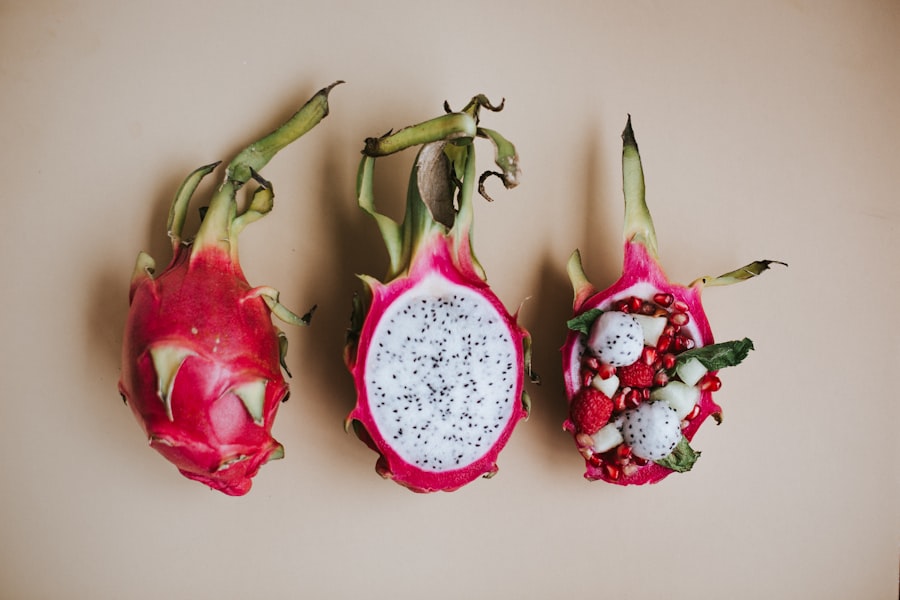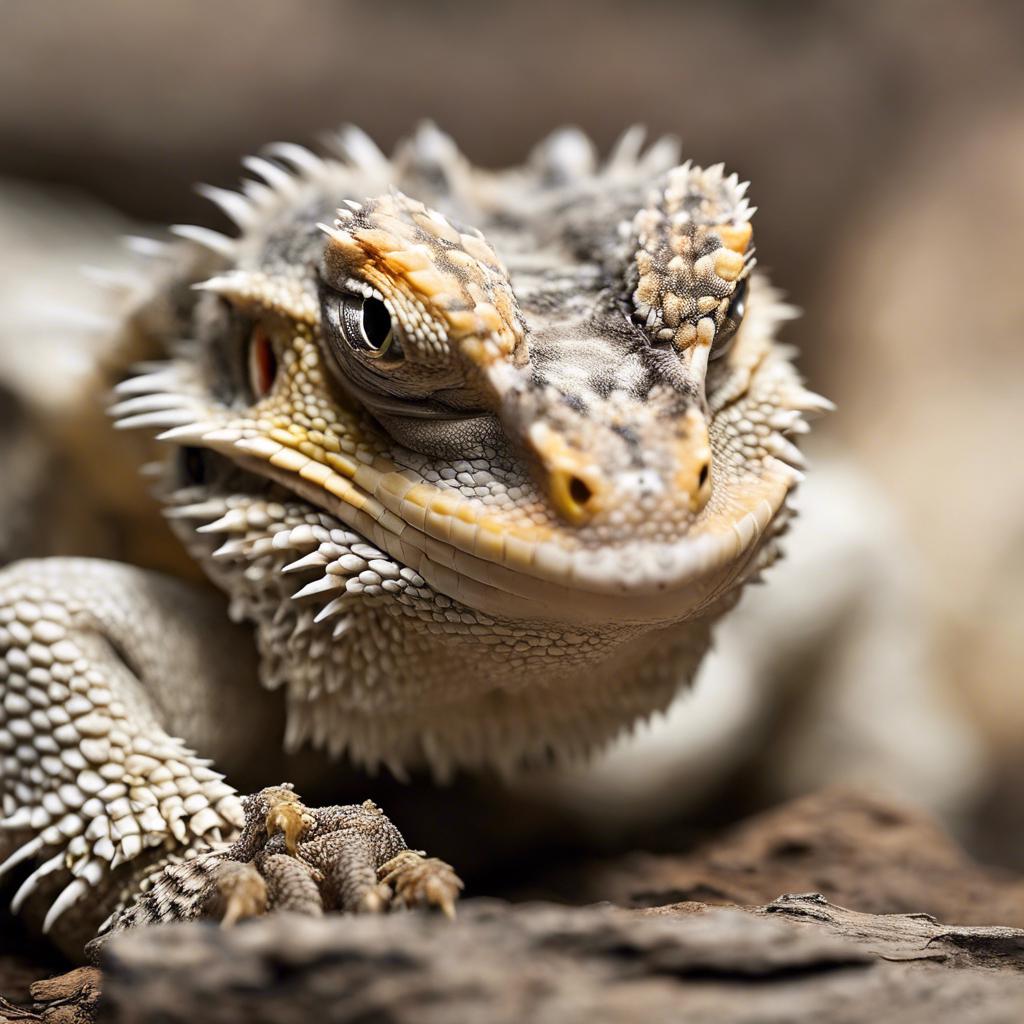Feeding silkworms to bearded dragons is a popular practice among reptile enthusiasts. Silkworms are not only a nutritious food source for these pets, but they also offer a variety of health benefits. However, it is important to understand the nutritional benefits and potential risks associated with feeding silkworms to bearded dragons.
Key Takeaways
- Silkworms are a nutritious food source for bearded dragons.
- Silkworms can be prepared by gut-loading and dusting with calcium powder.
- Bearded dragons should eat silkworms in moderation, with the amount depending on their size and age.
- Silkworms can be a regular part of a bearded dragon's diet, but should not be the sole food source.
- Risks of feeding silkworms to bearded dragons include choking and impaction, so monitoring their health is important.
Nutritional Benefits of Silkworms for Bearded Dragons
Silkworms are rich in protein and calcium, making them an excellent food source for bearded dragons. Protein is essential for muscle growth and repair, as well as overall development. Calcium is crucial for bone health and proper functioning of the nervous system.
The high protein content in silkworms helps support the growth and development of bearded dragons, especially during their early stages of life. It also aids in maintaining muscle mass and promoting overall health. Additionally, the calcium content in silkworms helps prevent metabolic bone disease, a common condition in reptiles that can lead to weak bones and deformities.
How to Prepare Silkworms for Bearded Dragons
To ensure that your bearded dragon receives optimal nutrition from silkworms, it is important to properly gut-load and dust them with supplements. Gut-loading involves feeding the silkworms a nutritious diet before offering them to your pet. This ensures that the insects are packed with essential nutrients that will be passed on to your bearded dragon.
You can gut-load silkworms by feeding them a variety of nutritious foods such as leafy greens, fruits, and vegetables. It is important to provide a balanced diet to the silkworms so that they can pass on a wide range of nutrients to your pet.
In addition to gut-loading, it is also important to dust the silkworms with calcium and vitamin supplements before feeding them to your bearded dragon. This helps ensure that your pet receives the necessary nutrients, especially if their regular diet may be lacking in certain vitamins and minerals.
When feeding frozen silkworms, it is important to thaw them properly before offering them to your bearded dragon. Thawing can be done by placing the frozen silkworms in a container and leaving them at room temperature for a few hours. It is important to avoid using a microwave or hot water to thaw the insects, as this can cause them to lose their nutritional value.
How Many Silkworms Should Bearded Dragons Eat?
The feeding frequency and portion size of silkworms for bearded dragons depend on their age, size, and overall health. As a general guideline, baby bearded dragons can be fed small amounts of silkworms daily, while adult dragons can be fed larger portions every few days.
It is important to monitor your pet's weight and adjust their diet accordingly. Overfeeding can lead to obesity and other health issues, while underfeeding can result in malnutrition. It is recommended to consult with a veterinarian or reptile specialist to determine the appropriate feeding schedule and portion size for your specific bearded dragon.
Can Silkworms Be a Regular Part of a Bearded Dragon's Diet?
Silkworms can be a regular part of a balanced diet for bearded dragons. However, it is important to provide variety and rotation in their diet to ensure they receive a wide range of nutrients.
While silkworms offer many nutritional benefits, they should not be the sole food source for bearded dragons. It is important to incorporate other feeder insects such as crickets, mealworms, and dubia roaches into their diet. This helps provide a balanced nutritional profile and prevents your pet from becoming too reliant on one type of food.
Potential Risks of Feeding Silkworms to Bearded Dragons

While silkworms offer many nutritional benefits, there are potential risks associated with overfeeding or feeding them exclusively. Silkworms have a high fat content, which can lead to obesity if fed in excess. Additionally, feeding silkworms exclusively can result in a lack of variety in your pet's diet, which may lead to nutritional deficiencies.
It is important to practice moderation and balance when feeding silkworms to bearded dragons. They should be offered as part of a varied diet that includes other feeder insects and vegetables. Monitoring your pet's weight and overall health is crucial to ensure they are receiving the appropriate amount of nutrients.
Bearded Dragon Care: Monitoring Your Pet's Health After Eating Silkworms
After feeding your bearded dragon silkworms, it is important to monitor their health for any signs of digestive issues or other health problems. Some common signs to watch for include changes in appetite, lethargy, diarrhea, or abnormal behavior.
If you notice any concerning symptoms, it is recommended to consult with a veterinarian who specializes in reptile care. They can provide guidance and treatment if necessary.
Alternatives to Silkworms for Bearded Dragons
If you are looking for alternative feeder insects for your bearded dragon, there are several options available. Crickets are a popular choice as they are readily available and provide a good source of protein. Mealworms and dubia roaches are also nutritious options that can be incorporated into your pet's diet.
Each alternative has its own pros and cons. Crickets are easily accessible but can be noisy and require additional care. Mealworms are convenient but have a higher fat content. Dubia roaches are low in fat but may not be as readily available as other options.
Frequently Asked Questions About Feeding Bearded Dragons Silkworms
Q: Can bearded dragons eat silkworms every day?
A: While silkworms can be fed daily to baby bearded dragons, it is not recommended to feed them every day as adults. It is important to provide a varied diet to ensure your pet receives a wide range of nutrients.
Q: Can bearded dragons eat frozen silkworms?
A: Yes, bearded dragons can eat frozen silkworms. However, it is important to thaw them properly before offering them to your pet.
Q: How many silkworms should I feed my bearded dragon?
A: The number of silkworms to feed your bearded dragon depends on their age, size, and overall health. It is recommended to consult with a veterinarian or reptile specialist to determine the appropriate portion size for your specific pet.
Silkworms as a Nutritious Addition to Your Bearded Dragon's Diet
In conclusion, feeding silkworms to bearded dragons can provide many nutritional benefits. They are rich in protein and calcium, which are essential for the growth and development of these pets. However, it is important to practice moderation and balance when incorporating silkworms into their diet.
By properly gut-loading and dusting the silkworms with supplements, you can ensure that your bearded dragon receives optimal nutrition. It is also important to provide variety and rotation in their diet by incorporating other feeder insects and vegetables.
With proper care and monitoring, silkworms can be a nutritious addition to your bearded dragon's diet. By following these guidelines, you can help promote the health and well-being of your beloved pet.
If you're wondering whether bearded dragons can eat silkworms, you'll find all the answers in this informative article from Reptile Wizard. Silkworms are a popular choice for reptile owners due to their high nutritional value and soft exoskeleton. This article explores the benefits of feeding silkworms to bearded dragons, including their protein content and low-fat levels. It also provides guidelines on how to properly prepare and serve silkworms as part of your pet's diet. To learn more about this topic, check out the article here.
FAQs
What are silkworms?
Silkworms are the larvae of the silk moth and are commonly used for silk production.
Are silkworms safe for bearded dragons to eat?
Yes, silkworms are safe for bearded dragons to eat and are a good source of protein.
What are the nutritional benefits of feeding silkworms to bearded dragons?
Silkworms are high in protein, calcium, and other essential nutrients that are beneficial for the growth and development of bearded dragons.
How often should bearded dragons be fed silkworms?
Silkworms can be fed to bearded dragons as a treat or as part of their regular diet. It is recommended to feed them once or twice a week.
Can bearded dragons eat live or dried silkworms?
Bearded dragons can eat both live and dried silkworms. However, live silkworms are more nutritious and provide a better feeding experience for the bearded dragon.
Are there any risks associated with feeding silkworms to bearded dragons?
There are no major risks associated with feeding silkworms to bearded dragons. However, it is important to ensure that the silkworms are properly gut-loaded and not contaminated with any harmful substances.

